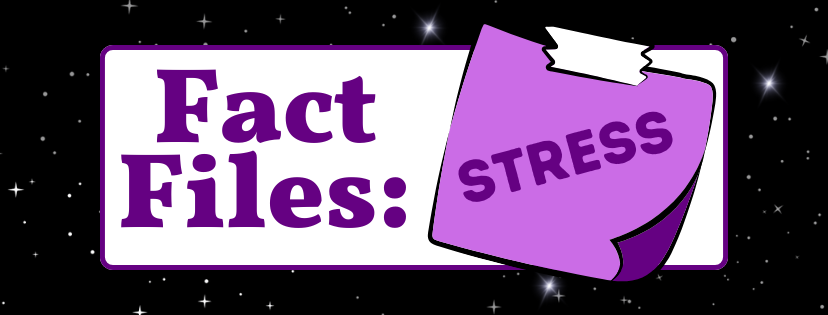While stress alone is not a mental health condition, it is often the cause and/or a symptom of one.
This month is Stress Awareness month, and seeing as each and every one of us experience feelings of stress from time to time, we felt it was important to highlight it here on SeeTheUniverse.
Fight or Flight
Stress is a natural response to being under pressure or feeling scared / threatened by something. When we feel this way, our body releases adrenaline, also known as the fight or flight hormone, which prompts us to act.
Fight: When we have a ‘fight’ response, this is our body sending signals to prepare for physical demand. As a result we may experience the some of the following:
– Tightening of the jaw / grinding teeth
– The urge to physically fight someone – or punch something
– Feeling angry
– Having the urge to stomp / shout / kick
– Crying
– Upset stomach
Flight: When we have a ‘flight’ response, this is our body telling us that we need to defeat the danger by removing ourselves from that situation. Therefore we may experience some of the following:
– Feeling fidgety
– Constantly moving legs, feet or arms
– Numbness in arms or legs
– Dilated and darting eyes
In both instances you may experience an elevated heart rate.
In small doses, stress can be seen as a healthy way to feel, as it can give you the push you need to finish a task. However, if you are feeling stress on a long-term basis and are struggling to cope with day-to-day tasks as a result, you may need some additional help.
Treatments:
In some cases stress may be treated using medication and/or talking therapies.
It can be helpful to talk to a loved one or a manager at work (if work is being affected) about your stress levels, so that they can help make day-to-day tasks easier.
Other things that can help with stress:
– Taking regular breaks, whether you are working or focused on a personal task. It is important to step away from things and reflect, or just breathe and focus on yourself. Being fixated on one thing can be mentally and physically draining and this can elevate stress levels.
– Talking to people. Being able to discuss your stress with someone you trust, whether it be a loved one or a medical professional, can really help to take the load off. Sometimes just saying how you are feeling out loud can be freeing.
– Being physically active. Exercising releases hormones in our bodies which can have a calming effect on us and can leave us feeling happier and relaxed.
– Practising meditation or yoga on a regular basis. These types of exercises allow us to focus on our breathing and our bodies and can help to relax us and relieve stress.
– Writing. Writing about your thoughts and feelings and the things that are causing you stress and upset can be a good stress reliever. Some people may find that they are better at expressing themselves through written words. It can also be a good way to analyse your current situation, such as making pro/con lists or writing out alternative ways of dealing with your circumstances.
Resources:


